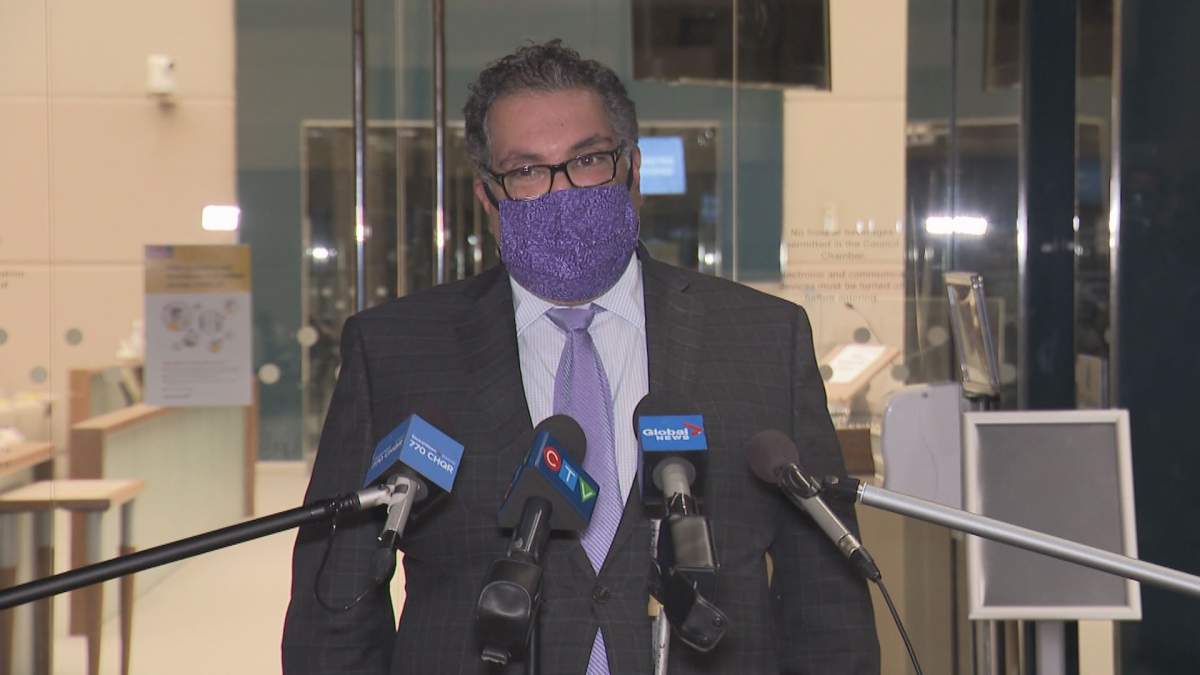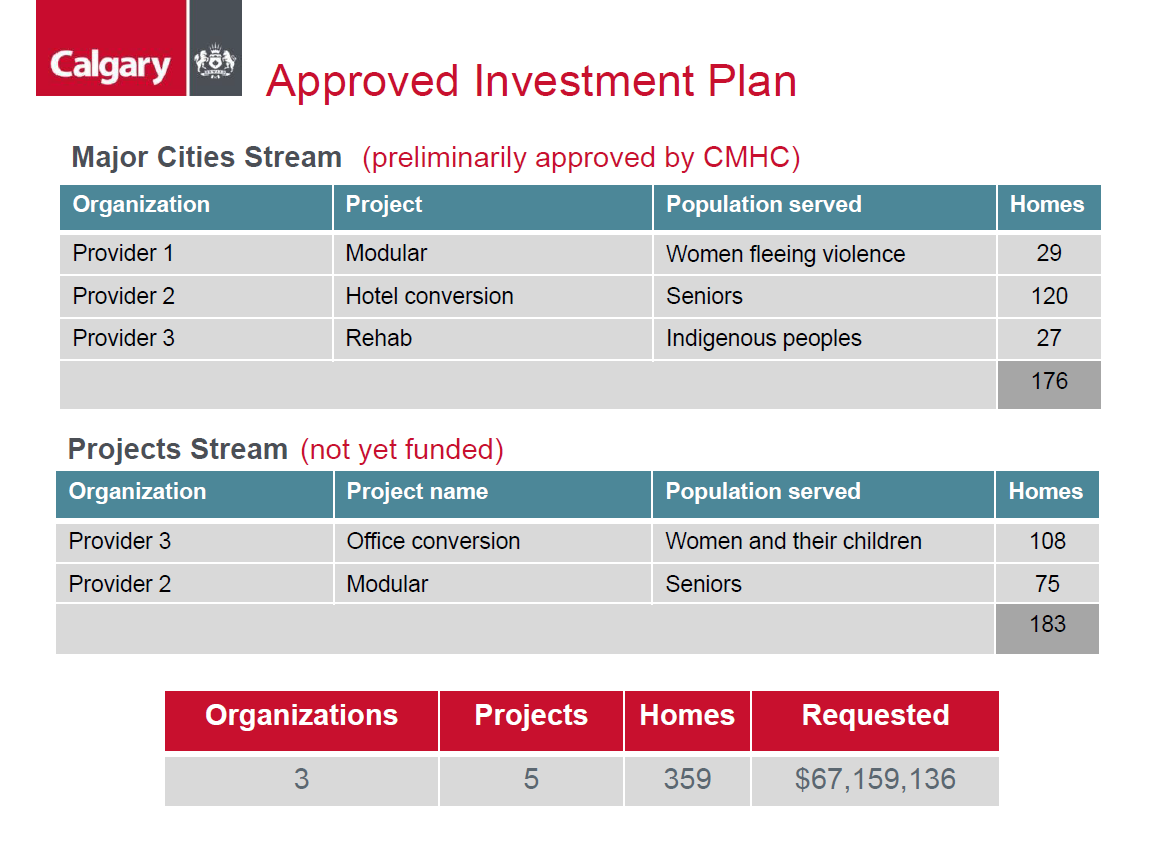Calgary’s affordable housing will be getting a $24.6-million shot in the arm as part of the federal Rapid Housing Initiative (RHI).

“This is a great first step,” Mayor Naheed Nenshi said Tuesday.
“It’s specifically aimed at being opportunistic right now in being able to make things happen quickly, as a result of the pandemic.”
The Canada Mortgage and Housing Corporation (CMHC) announced the initiative on Sep. 21, which is designed to deliver $1 billion in capital funding to create 3,000 new units to address urgent housing for vulnerable populations across the country.
Taking a slightly different approach from other cities, Calgary identified five projects worth $67.2 million from three existing non-profit housing providers that would create 359 units in the city.
As of Tuesday’s city council meeting, $24.6 million in federal funding has been approved by CMHC, netting 176 units.
The mayor said the RHI units would only address a fraction of what Calgary needs to eliminate homelessness in the city.

Get weekly money news
“We need 5,000 units, but we have a path to get there for a relatively modest investment (of $500 million),” Nenshi said.
“And that’s something I’m going to keep pushing through the federal and provincial budgets.”
According to city officials, Calgary has about half of the province’s homeless population, numbering nearly 3,000 people.

The non-profits would own and operate the RHI properties, and the federal funding does not require the city or province to match any proportion with their own money. However, the as-yet unnamed non-profits committed to adding some funds of their own to up the capacity of the first group of projects from 116 units to 176 units.
“We (the city) don’t build a ton of affordable housing ourselves. We grant nonprofits the money to build the housing. And there’s always a caveat that this must be used for affordable housing,” Nenshi said, noting non-profits could face serious penalties from Revenue Canada if they ‘flipped’ the properties, selling them shortly after acquiring them.
Nenshi said the up-front funding for nearly all of the building costs help non-profits build their own capital, that they can then leverage for other projects, further building out the city’s non-profit sector. It’s a practice already within the sector.
“What we see a lot of organizations doing is they might have some very valuable land that they can redevelop as mixed-use housing or mortgage and use that to build more deep-subsidy stuff,” the mayor said.

The approved projects in the RHI major cities stream include a hotel conversion, rehabilitation of existing facilities and modular construction for groups like seniors, Indigenous peoples and women fleeing violence.
The proposed projects stream includes an office conversion and more modular construction.
City council voted unanimously to support the RHI projects, which could be occupied as early as mid-2021.
A formal announcement is expected Thursday morning, with the mayor and a federal minister in attendance.










Comments